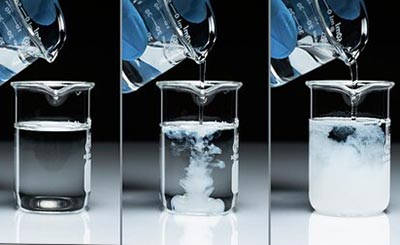Application
What is the precipitate of barium?
In the realm of chemistry, certain reactions evoke a sense of fascination and intrigue, and among these is the formation of precipitates.
The precipitate of barium typically refers to barium sulfate (BaSO4). When barium ions (Ba^2+) react with sulfate ions (SO4^2-), insoluble barium sulfate is formed as a white precipitate. This reaction is often used in analytical chemistry to detect the presence of sulfate ions in a solution, as barium sulfate is highly insoluble and can easily be observed as a precipitate.

The Chemistry Behind Precipitation
The process of precipitation occurs when two soluble compounds react to form an insoluble compound, resulting in the formation of a solid product. In the case of barium sulfate, the interaction between barium ions and sulfate ions leads to the formation of this insoluble compound.
Applications in Various Industries
The properties of barium sulfate make it valuable in several industries. In medicine, it is utilized as a contrast agent in X-ray imaging procedures, aiding in the visualization of certain tissues and organs. Furthermore, in the manufacturing sector, barium sulfate finds application in the production of pigments, paints, and coatings due to its high opacity and resistance to chemicals and light.




